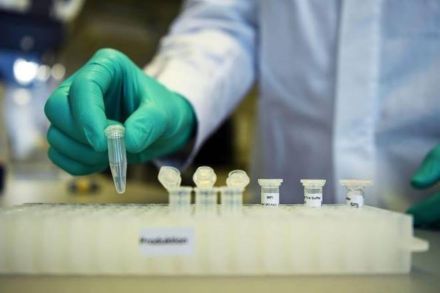From risk/exposure detection apps like India’s Aarogya Setu to sensors GE is developing with grants from the US’s National Institutes of Health that can help detect the virus, technology—and, within that, artificial intelligence (AI)—has played a big role in the pandemic response worldwide.
Indeed, AI is also a significant factor behind the unprecedented pace of development of the most important tool in the world’s arsenal against Covid-19—the vaccines. So, Defence Research and Development Organization’s Atman AI, developed along with 5C Network and HCG Academics, may seem like incremental progress in the larger picture. But, it has the potential to be a game-changer for Covid-19 diagnostics. With over 3.75 lakh daily new cases (7-day rolling average on May 12), the need for faster diagnosis to enable care that can prevent severe morbidity/death and isolation to help check the spread can’t be emphasised enough. Atman AI can detect Covid-19 infection and its severity from radiological images of the lungs within seconds. Given RTPCR testing is already quite stretched and computerised tomography (CT) is both expensive and not readily available in many geographies, Atman AI will help early detection with obvious cost-benefits. And, with ability to detect severity, it can play a seminal role in triage decisions in hospitals/tele-consultations. Given it is based on machine-learning—the AI tool ‘learnt’ to identify radiological signatures of Covid-19 from chest X-rays of RTPCR-positive patients—with each image fed to it, its efficacy and accuracy in diagnosis will improve by leaps; the developers already claim an accuracy of close to 97%.
Mumbai-based Qure.ai, Business Standard reports, is using AI to identify people at high risk of Covid-19 well in advance while Facebook’s tool can predict four days in advance—more accurately than human experts—if a patient will need intensive care by studying sequential chest X-rays. GE’s radiology-inputs based ventilator guidance tool, the University of New Mexico’s REDIAL 2020 platform that will enable warp-speed screening of “novel compounds” for anti-SARS CoV-2 properties, Tamil Nadu’s and Telangana’s use of AI apps to detect mask-usage violations, machine-learning apps that can detect Covid-19 from sound of cough, etc, the examples of technology being used in the fight against the pandemic are now many.
India needs to also bring the AI/tech-edge to its fight against other diseases and health conditions—a recent Financial Times article points out how the UK’s National Health Service is using AI to take care of its tens of thousands of beneficiaries, even outside of Covid-19. The National Digital Health Mission gives India the opportunity to build on health data—with relevant citizen-interest safeguards—to make more and more such tools for securing the country’s future health; it can partner private sector players, and the pandemic should act as a catalyst for this.
